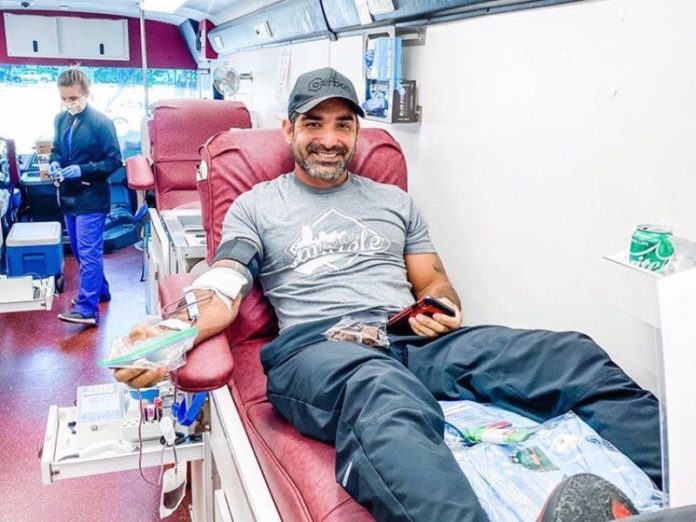Blood Assurance is the sole provider of blood and blood products to Williamson Health and Maury County Regional Medical Center. They are a nonprofit, full-service regional blood center serving additional healthcare facilities in Tennessee, Georgia, Alabama, Kentucky and North Carolina. Based in Chattanooga, Tennessee, they currently have 15 fixed locations and 19 bloodmobiles to collect lifesaving blood products used by area patients. Their blood center in Williamson County is located on Frasier Avenue.
The organization’s COO, Christopher Swafford, moved to Franklin in March of 2020 to help build up operations in Middle Tennessee as the 50-year-old company continues to grow. At a recent FrankTalks, he discussed the organization and their mission to provide a safe and adequate supply of blood and blood components in a cost-effective manner to every area patient in need.
“We are the conduit through which the community supports patients in our local hospitals,” said Swafford. He has come from the operations side of the hospital into this organization.
Founded in 1972 as a joint effort of the Chattanooga-Hamilton County Medical Society, the Chattanooga Area Hospital Council and the Chattanooga Junior Chamber of Commerce, Blood Assurance’s reach quickly expanded beyond Chattanooga. Currently, they serve 800 hospitals in the five states where they are located.
Their blood mobiles go to hospitals, businesses and schools to collect blood. There are folks who can’t give blood for a number of reasons, but Swafford challenged everyone who can give blood to do so. It takes more than 540 volunteer blood donors every day in order to keep an adequate supply of blood, platelets and plasma flowing to hospitals.
“It can’t be done any other way than by folks volunteering,” explained Swafford. “There is no synthetic substitute for blood. It has to come from healthy people in the community…It only takes about 45 minutes for whole blood donation.”
Only about 5 to 10% of people who are eligible to give blood donate, but 99% take the transfusion when needed. There is a huge need for type O blood and platelets. Blood can only be stored for 42 days, but volunteers can only donate every 56 days, so they are always looking to bring in new donors. And platelets have a shelf life of only five days.
Blood Assurance does blood drives in schools, and they have funds to provide scholarships to teen donors. Page High School is actively in their high school blood drive program.
“There is a huge decline of younger donors across this country,” said Swafford. “The median demographic for those that are out donating is in their late fifties and early sixties. The folks that are going to be coming behind those folks to replace them are anyone from 16 to 30 years old. And we have to work really hard to educate and motivate those donors to come out.”
All collected blood is processed in their headquarters in Chattanooga and then sent to hospitals as quickly as possible. Blood is needed by patients with cancer, trauma, sickle cell disease, hemophilia and much more.
“The reason we do what we do is because every two seconds there is a patient that needs blood across the country…There are times we can not only help folks, but help folks outside of the Blood Assurance footprint.”
They are members of the American Association of Blood Banks, the Tennessee Association of Blood Banks, the Tennessee Hospital Association, Blood Centers of America, the Georgia Department of Community Health, the Tennessee Department of Health, and the Chattanooga Area Hospital Council. Blood Assurance is licensed by the Tennessee Department of Public Health, the Georgia Department of Human Resources and the U.S. Food and Drug Administration.
Blood Assurance does not do disaster relief, as the Red Cross does, but they do both supply blood. Red Cross supplies both Vanderbilt and St. Thomas with blood and blood products, and Blood Assurance is a secondary supplier to those hospitals.
“The need is always out there,” added Swafford.

















